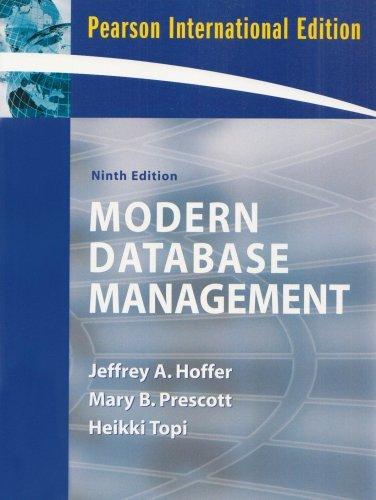Question
The Programming Example, Converting a Number from Binary to Decimal , in Chapter 15 , uses recursion to convert a binary number into an equivalent
The Programming Example, Converting a Number from Binary to Decimal, in Chapter 15, uses recursion to convert a binary number into an equivalent decimal number.
Write a program that uses a stack to convert a binary number (input by the user) into an equivalent decimal number.
********************
linkedStack.h
*******************
//Header File: linkedStack.h
#ifndef H_StackType
#define H_StackType
#include
#include
#include "stackADT.h"
using namespace std;
//Definition of the node
template
struct nodeType
{
Type info;
nodeType
};
template
class linkedStackType: public stackADT
{
public:
const linkedStackType
(const linkedStackType
//Overload the assignment operator.
bool isEmptyStack() const;
//Function to determine whether the stack is empty.
//Postcondition: Returns true if the stack is empty;
// otherwise returns false.
bool isFullStack() const;
//Function to determine whether the stack is full.
//Postcondition: Returns false.
void initializeStack();
//Function to initialize the stack to an empty state.
//Postcondition: The stack elements are removed;
// stackTop = nullptr;
void push(const Type& newItem);
//Function to add newItem to the stack.
//Precondition: The stack exists and is not full.
//Postcondition: The stack is changed and newItem
// is added to the top of the stack.
Type top() const;
//Function to return the top element of the stack.
//Precondition: The stack exists and is not empty.
//Postcondition: If the stack is empty, the program
// terminates; otherwise, the top
// element of the stack is returned.
void pop();
//Function to remove the top element of the stack.
//Precondition: The stack exists and is not empty.
//Postcondition: The stack is changed and the top
// element is removed from the stack.
linkedStackType();
//Default constructor
//Postcondition: stackTop = nullptr;
linkedStackType(const linkedStackType
//Copy constructor
~linkedStackType();
//Destructor
//Postcondition: All the elements of the stack are
// removed from the stack.
private:
nodeType
void copyStack(const linkedStackType
//Function to make a copy of otherStack.
//Postcondition: A copy of otherStack is created and
// assigned to this stack.
};
//Default constructor
template
linkedStackType
{
stackTop = nullptr;
}
template
bool linkedStackType
{
return(stackTop == nullptr);
} //end isEmptyStack
template
bool linkedStackType
{
return false;
} //end isFullStack
template
void linkedStackType
{
nodeType
while (stackTop != nullptr) //while there are elements in
//the stack
{
temp = stackTop; //set temp to point to the
//current node
stackTop = stackTop->link; //advance stackTop to the
//next node
delete temp; //deallocate memory occupied by temp
}
} //end initializeStack
template
void linkedStackType
{
nodeType
newNode = new nodeType
newNode->info = newElement; //store newElement in the node
newNode->link = stackTop; //insert newNode before stackTop
stackTop = newNode; //set stackTop to point to the
//top node
} //end push
template
Type linkedStackType
{
assert(stackTop != nullptr); //if stack is empty,
//terminate the program
return stackTop->info; //return the top element
}//end top
template
void linkedStackType
{
nodeType
if (stackTop != nullptr)
{
temp = stackTop; //set temp to point to the top node
stackTop = stackTop->link; //advance stackTop to the
//next node
delete temp; //delete the top node
}
else
cout << "Cannot remove from an empty stack." << endl;
}//end pop
template
void linkedStackType
(const linkedStackType
{
nodeType
if (stackTop != nullptr) //if stack is nonempty, make it empty
initializeStack();
if (otherStack.stackTop == nullptr)
stackTop = nullptr;
else
{
current = otherStack.stackTop; //set current to point
//to the stack to be copied
//copy the stackTop element of the stack
stackTop = new nodeType
stackTop->info = current->info; //copy the info
stackTop->link = nullptr; //set the link field of the
//node to nullptr
last = stackTop; //set last to point to the node
current = current->link; //set current to point to
//the next node
//copy the remaining stack
while (current != nullptr)
{
newNode = new nodeType
newNode->info = current->info;
newNode->link = nullptr;
last->link = newNode;
last = newNode;
current = current->link;
}//end while
}//end else
} //end copyStack
//copy constructor
template
linkedStackType
const linkedStackType
{
stackTop = nullptr;
copyStack(otherStack);
}//end copy constructor
//destructor
template
linkedStackType
{
initializeStack();
}//end destructor
//overloading the assignment operator
template
const linkedStackType
(const linkedStackType
{
if (this != &otherStack) //avoid self-copy
copyStack(otherStack);
return *this;
}//end operator=
#endif
********************
stackADT.h
********************
//Header file: stackADT.h
#ifndef H_StackADT
#define H_StackADT
template
class stackADT
{
public:
virtual void initializeStack() = 0;
//Method to initialize the stack to an empty state.
//Postcondition: Stack is empty
virtual bool isEmptyStack() const = 0;
//Function to determine whether the stack is empty.
//Postcondition: Returns true if the stack is empty,
// otherwise returns false.
virtual bool isFullStack() const = 0;
//Function to determine whether the stack is full.
//Postcondition: Returns true if the stack is full,
// otherwise returns false.
virtual void push(const Type& newItem) = 0;
//Function to add newItem to the stack.
//Precondition: The stack exists and is not full.
//Postcondition: The stack is changed and newItem
// is added to the top of the stack.
virtual Type top() const = 0;
//Function to return the top element of the stack.
//Precondition: The stack exists and is not empty.
//Postcondition: If the stack is empty, the program
// terminates; otherwise, the top element
// of the stack is returned.
virtual void pop() = 0;
//Function to remove the top element of the stack.
//Precondition: The stack exists and is not empty.
//Postcondition: The stack is changed and the top
// element is removed from the stack.
};
#endif
Step by Step Solution
There are 3 Steps involved in it
Step: 1

Get Instant Access to Expert-Tailored Solutions
See step-by-step solutions with expert insights and AI powered tools for academic success
Step: 2

Step: 3

Ace Your Homework with AI
Get the answers you need in no time with our AI-driven, step-by-step assistance
Get Started


